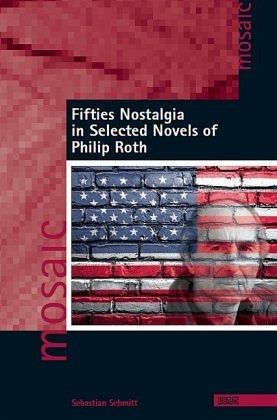Nicht lieferbar

Fifties Nostalgia in Selected Novels of Philip Roth
Versandkostenfrei!
Nicht lieferbar
This study investigates the significance of a formative period in American history for Philip Roth's writing: the American fifties. Nostalgia for this "golden age" still plays an important role in popular and political discourses in the United States. In three case studies, this book analyses how Philip Roth engages with fifties nostalgia in his novels Indignation, I Married a Communist and Sabbath's Theater. These novels are not simply set in the American fifties, they are essentially about this historical period which still captures the American imagination. Contextual close readings of the ...
This study investigates the significance of a formative period in American history for Philip Roth's writing: the American fifties. Nostalgia for this "golden age" still plays an important role in popular and political discourses in the United States. In three case studies, this book analyses how Philip Roth engages with fifties nostalgia in his novels Indignation, I Married a Communist and Sabbath's Theater. These novels are not simply set in the American fifties, they are essentially about this historical period which still captures the American imagination. Contextual close readings of the individual texts illuminate how these novels are pervaded by a specific rhetorical structure, the American jeremiad, and how this allows Roth to dramatize a specifically Jewish-American form of Americanization. By investigating the functions of fifties nostalgia in his novels, the present study sheds light on the means with which Roth appropriates American history as a form of dissent in hiswriting and how he appropriates the American fifties to engage with contemporary political discourses in American culture. This also serves to reveal the imaginative and ideological constraints that Roth contends with in his novels. In Roth's hands, the American fifties become ultimately a means to explore a wide range of issues such as the spectre of homelessness, the culture-war debates or the recent wars in Iraq and Afghanistan. What Philip Roth's novels therefore demonstrate in utmost clarity is that fifties nostalgia remains as relevant as ever.



